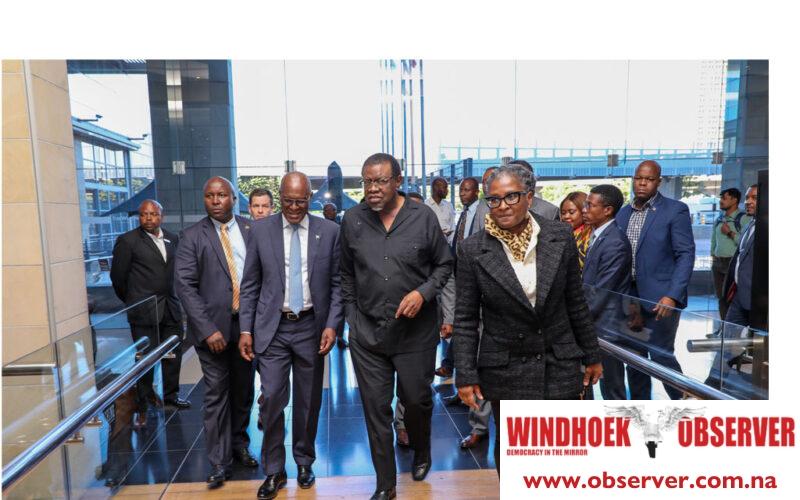Niël Terblanché
President Hage Geingob has stressed the urgent need for African nations to collaborate on constructing robust and environmentally responsible industries for a sustainable future.
While addressing the official opening of Africa Energy Week in Cape Town, the Namibian Head of State called for unity when new energy policies are created around the development of sustainable energy projects.
Geingob stressed the importance of renewed unity while African nations pursue industrialization.
He pointed to the critical role of reliable and quality energy supply in driving economic development and achieving goals such as Agenda 2063: The Africa We Want and the United Nations Sustainable Development Goals (SDGs).
He expressed his optimism about the ongoing renaissance in renewable and non-renewable energy sources on the continent.
He pointed to the potential to combat poverty, protect the environment, and promote industrialization through responsible energy development.
Namibia, known for its transparent governance and investment-friendly climate, was singled out as a hotspot for hydrocarbon prospecting, with a significant share of offshore rigs operating in Africa.
Geingob mentioned major oil discoveries off Namibia’s shores by Shell and Total, potentially resulting in substantial light crude oil reserves.
The President also called on multinational oil and energy companies operating in Africa to demonstrate leadership in transitioning to cleaner energy sources and developing sustainable industrial complexes on the continent.
“This would maximize benefits for Africa while respecting environmental boundaries,” he argued.
He also stressed the immediate priority of providing affordable energy for all Africans, emphasizing the need for a balanced energy mix. He cited statistics showing the rapid growth of renewable energy sources like wind, solar, and geothermal, highlighting their potential to transform African economies.
He said that Agenda 2063 was presented as a clear call from African leaders for sustainable development, with an emphasis on adding value to commodities and developing a continental commodities strategy. Namibia pledged its commitment to these ideals. To achieve a smart, diversified energy generation structure and enhance grid reliability, Geingob urged continued investments in cross-border transmission infrastructure and electricity trade across Africa.
In response to questions about Namibia’s pursuit of hydrocarbons alongside green and blue economy initiatives, President Geingob emphasized their interdependence.
He argued that as long as the world relies on a dynamic energy mix, Namibia is willing to meet global energy demands while strategically investing in cleaner, more sustainable industries.
The president pointed to Namibia’s comprehensive strategy for a clean synthetic fuels industry, which aims to bolster green industrialization and create significant employment opportunities.
He said that the initiative is expected to increase Namibia’s GDP by $6.1 billion by 2040.
“Africa’s rich endowments of commodities like cobalt, copper, nickel, lithium, and manganese were also highlighted, with the potential to create substantial GDP growth through responsible production and downstream value addition,” he said
Geingob stressed the need for coordinated efforts among African nations to capture a share of the growing global market driven by the energy transition.
Africa Energy Week continues to provide a platform for African nations to collaborate, innovate, and shape the future of sustainable energy development on the continent.
According to the President, Namibia’s commitment serves as an inspiring call to action for all Africans to work together towards a brighter, more sustainable energy future.




